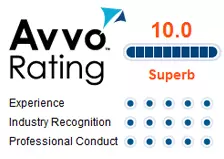The following article published in the April 2009 DWI Journal: Law & Science. This is only the first few paragraphs. The article was written by top Illinois DUI lawyer Donald J. Ramsell. To obtain the entire article, you must subscribe to the Journal. This article was published in two parts, including both March and April 2009.
In these conservative times, in DUI/DWI cases, the strength of the state’s case, when left untested or uncontradicted, is sufficient to prove their case beyond a reasonable doubt. Most jurors (and many judges) have heard the mantra over and over again – “You drink, you drive, you lose.” Therefore, it is incumbent on the defense to develop (and discover) any and all evidence that can help win a client’s case.
This article discusses the basic rights of a DUI (or criminal) defendant to investigate, obtain, discover, explore and present evidence that is in support of a not-guilty finding. The primary source for the right of a defendant to uncover favorable evidence and to present any defense is found in the various aspects of the Sixth Amendment to the United States Constitution.
Because a great majority of DUI/DWI cases are prosecuted based upon results produced from machines manufactured by private companies, this article will also frequently focus on how the right to present a defense generally relates to attacking the reliability and accuracy of breath or blood alcohol testing.
The Sixth Amendment to the United States Constitution states:
In all criminal prosecutions, the accused shall enjoy the right to a speedy and public trial, by an impartial jury of the State and district wherein the crime shall have been committed, which district shall have been previously ascertained by law, and to be informed of the nature and cause of the accusation; to be confronted with the witnesses against him; to have compulsory process for obtaining witnesses in his favor, and to have the Assistance of Counsel for his defence.
U.S.C.A. Const. Amend. VI-Jury Trials
The Sixth Amendment includes:
- The Right to Present a Meaningful Defense and Meaningful Evidence
- The Right of Compulsory Process – Subpoenas
- The Right to Present Expert Testimony (even when indigent)
- The Right to be Free from Governmental Interference with Defense Witnesses
- The Right to Confront Evidence – machine or inspector or operator or source code
- The Right of Independent Testing.
- Right to Present Meaningful Defense
When the right to present a meaningful defense is discussed, the key word is ‘meaningful’. Far too often, judges will attempt to limit a defense to basic lip service, i.e., you can say that a breath test isn’t perfect, but using up the court’s time to prove it is not going to be allowed. The following cases represent basic tenets of the right to present a meaningful defense in the DUI arena.
In Trombetta v. California, the court held that the failure to preserve a breath sample that was capable of being captured, so that an independent analysis could be performed, did not violate a defendant’s right to present a defense. However, in so doing, the Trombetta court’s ruling proceeded on the assumption that, as a general rule, the defendant would still be allowed a fair opportunity to rebut the test results at trial:
Even if one were to assume that the Intoxilyzer results in this case were inaccurate and that breath samples might therefore have been exculpatory, it does not follow that respondents were without alternative means of demonstrating their innocence. Respondents and amici have identified only a limited number of ways in which an Intoxilyzer might malfunction: faulty calibration, extraneous interference with machine measurements, and operator error. Respondents were perfectly capable of raising these issues without resort to preserved breath samples. To protect against faulty calibration, California gives drunken driving defendants the opportunity to inspect the machine used to test their breath as well as that machine’s weekly calibration results and the breath samples used in the calibrations. Respondents could have utilized these data to impeach the machine’s reliability. As to improper measurements, the parties have identified only two sources capable of interfering with test results: radio waves and chemicals that appear in the blood of those who are dieting. For defendants whose test results might have been affected by either of these factors, it remains possible to introduce at trial evidence demonstrating that the defendant was dieting at the time of the test or that the test was conducted near a source of radio waves. Finally, as to operator error, the defendant retains the right to cross-examine the law enforcement officer who administered the Intoxilyzer test, and to attempt to raise doubts in the mind of the factfinder whether the test was properly administered. FN11
FN11. Respondents could also have protected themselves from erroneous on-the-scene testing by electing to submit to urine or blood testsbecause the State automatically would have preserved urine and blood samples for retesting by respondents. Respondents, however, were not informed of the difference between the various testing procedures when they were asked to select among the three available methods of testing blood-alcohol concentrations. To the extent that this and other access-to-evidence cases turn on the underlying fairness of governmental procedures, it would be anomalous to permit the State to justify its actions by relying on procedural alternatives that were available, but unknown to the defendant. Similarly, it is irrelevant to our inquiry that California permits an accused drunken driver to have a second blood-alcohol test conducted by independent experts, since there is no evidence on this record that respondents were aware of this alternative.
California v. Trombetta 467 U.S. 479, 490 (1984)
In Chambers v. Mississippi, 410 U.S. 284, 302-03 (1973) the Supreme Court held that Mississippi evidentiary rules regulating impeachment and hearsay cannot impair criminal defendant’s right to cross-examine witnesses and present witnesses in his defense.
In State v. Brickhouse, 20 Kan. App. 2d 495, 500-02, 890 P.2d 353 (1995), it was held that hearsay rules and district court discretion cannot be applied unfairly to deprive criminal defendant of the right to present his defense.
The court must ascertain whether a DUI statute and accompanying testing regulations establishing the reliability of breath testing in administrative revocation hearings are contrary to due process. Meehan v. Kansas Dept. of Revenue 25 Kan. App. 2d 183, 186, 959 P.2d 940, 943 (1998)
In State v. Shuler,168 Ohio App. 3d 183, 186, 858 N.E.2d 1254, 1257 (2006), the defendant sought to admit a PBT result into evidence on his own behalf. The trial court refused. On appeal, it was held that the results of any preliminary breath test (PBT) was unreliable and, thus, exclusion of results of PBT (0.078) from evidence did not violate a defendant’s Fifth Amendment right to due process nor his Sixth Amendment right to compulsory process. “Further, we commend counsel for the state herein for his candor at oral argument regarding the PBT’s use.”










Comments on this entry are closed.